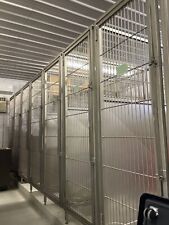Dangers of Secondhand Smoke to Pets Highlighted
It is widely known that secondhand smoke affects humans living or working with smokers, and some 50,000 Americans lose their lives to health problems related to secondhand smoke annually. According to the Surgeon General’s Report, animals face the same health risks associated with secondhand smoke – including respiratory problems, allergies and even cancer. Toxins in secondhand smoke can cause lung and nasal cancer in dogs, and malignant lymphoma in cats. Other pets have been shown to suffer from allergies and respiratory problems.
Nearly 30% of pets live with at least one smoker, a figure that the ASPCA® (The American Society for the Prevention of Cruelty to Animals®) says is too high. During April, Prevention of Cruelty to Animals Month, the ASPCA is partnering with the American Legacy Foundation®, the national independent public health foundation dedicated to keeping young people from smoking and providing resources to smokers who want to quit, to challenge pet owners to stop smoking for their pets’ health, or at least to only smoke outside away from their animals.
"While most Americans have been educated about the dangers of smoking to their own bodies and their children’s, it is equally important that pet owners take action to protect their beloved companion animals from the dangers of secondhand smoke," said Dr. Cheryl G. Healton, DrPH, President and CEO of the American Legacy Foundation.
"Tobacco smoke has been shown to contain numerous cancer-causing compounds, making it hazardous for animals as well as humans. Exposure to secondhand smoke can cause many of the same harmful inflammatory changes in the airways and lungs of dogs as their human counterparts. Nicotine – found in cigarettes and other tobacco products – is also highly toxic to animals if ingested. A dog that accidentally eats tobacco may develop weakness, decreased breathing rate, and could possibly die. The ASPCA strongly recommends keeping your pet away from tobacco as well as secondhand smoke," said Mindy Bough, Vice President of ASPCA Animal Poison Control.














